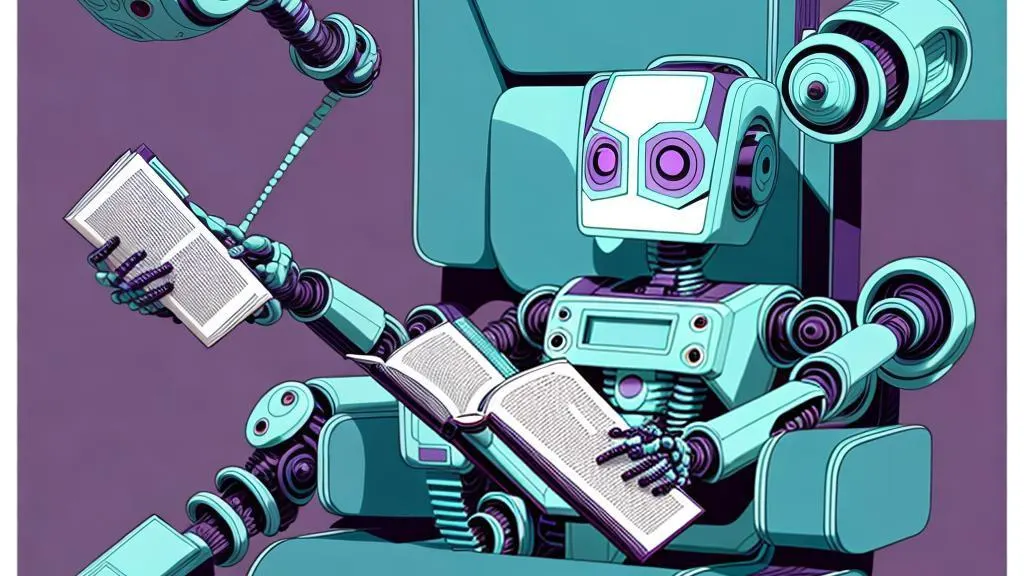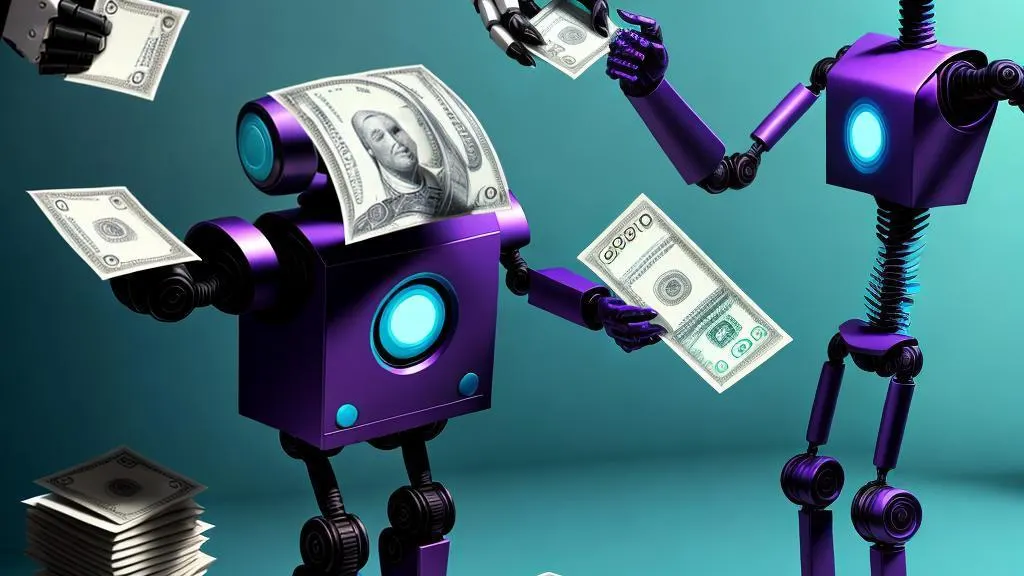Ah, the digital age! Where technology and human ingenuity frequently rendezvous to birth a future packed with opportunities and avenues we could only conjure up in sci-fi flicks. The leaps and bounds in Artificial Intelligence (AI) technology are particularly impressive, ain't they? There's one angle of AI that's stirring quite the buzz in small business circles, among marketing aficionados, and digital moguls: AI's role in content creation.
Yes indeed, fellow entrepreneurs, AI is not just about chatbots or predictive analytics anymore; it's venturing boldly into realms we deemed untouchable, the realm of creativity and expression. Like a chameleon adapting to its environment, AI has risen to the task, churning out long-form content that's got us all curious. Buckle up, everyone; we're diving headfirst into the reality of AI-generated content, its impact on SEO, its potential in driving website traffic, and indeed, the influence it wields over our businesses.
Technologies and Algorithms Underpinning AI Writing of Long-Form Content
A fascinating development in the domain of technological development is the ability of Artificial Intelligence (AI) to produce long-form content like full-fledged books. The secret sauce behind AI's writing prowess is a suite of technology and algorithms dubbed as Machine Learning and Natural Language Processing (NLP).
Machine Learning is a subfield of AI, where algorithms learn from and make decisions based on data. In the context of writing, AI uses a machine learning technique known as Deep Learning, that mimics human neural networks to process data. Over time, these algorithms are trained with text-based data to recognize patterns and create outputs similar in style, tone, and structure to the training data.
Natural Language Processing (NLP), another essential cog in the AI writing machine, is a discipline that focuses on programming computers to process and analyze the natural human language. It divides written language into smaller pieces, assesses its meaning, and uses statistical models to generate new structures of sentences.
A revolutionary AI writing software, GPT-3, developed by OpenAI exemplifies these technologies' application. GPT-3 utilizes an AI model based on transformers, a type of neural network architecture. It uses a predictive mechanism called Transformer-based Language Models, trained on a corpus of text from the internet, generating human-like text by predicting the likelihood of a word given the prior ones entered as a prompt.
How Authors and Publishers are Leveraging AI
The rise of AI tools like GPT-3 has transformed the literary domain, pushing the boundaries of conventional writing and publishing. Storyteller AI, for instance, is a popular tool helping authors brainstorm story ideas and write books faster. The AI provides character ideas, suggests plots and scenes, and can even write drafts of chapters.
AI has proved handy not only to independent authors but also to established publishers. HarperCollins, one of the world's largest publishing companies, employed an AI developed by a startup called Trapit to assist in content curation for social media promotion of books.
An interesting use case of AI in content creation comes from Brett Schickler, a salesman from Rochester, New York. He used ChatGPT to quickly generate a 30-page illustrated children's e-book titled "The Wise Little Squirrel: A Tale of Saving and Investing", that was offered for sale through Amazon's self-publishing unit.
Yet, despite its efficiency in content generation, the question remains - does using AI to write a book reap similar rewards to manual authorship? The commercial success of AI-authored books to date has been modest. Brett Schickler made less than $100 from his AI-authored e-book, suggesting that AI authorship might not be the quick route to striking it rich, as some might suppose.
Creative, Legal, and Ethical Implications of AI-Authored Books
While the emergence of AI as a content creation tool opens up a plethora of opportunities, it stirs a pot of creative, legal, and ethical debates.
Creatively, AI-authored books pose a challenge to the traditional conception of authorship. In conventional parameters, the author is one who invents, arranges, and renders words in a unique and creative manner. However, with AI, the creative spark is outsourced to a machine, leading to the question, who truly authored the book?
On the legal front, the principal query is, can AI own copyrights? Current copyright law does not recognize AI as an author, raising questions about plagiarism, especially since AI draws from existing texts to generate content.
Ethically, a significant concern is transparency. Instances of AI-authored book listings without proper disclosure unveil the murky waters of consumer deception. It's imperative for stakeholders to establish norms emphasizing the clear labeling of AI-written content to maintain trust and authenticity.
Despite the dilemmas, AI's role in content creation cannot be undermined. In fact, AI could potentially democratize authorship, allowing more individuals to break into the writing scene swiftly and, in many instances, cost-effectively.
However, how these technological advancements will ultimately affect the field of content creation, SEO, or website traffic is yet to be discovered. As we journey through the evolving AI landscape, finding the balance between leveraging technology's benefits and treading ethically will be key in shaping the future of writing and authorship.
Conclusion
Well, well, well! There you have it, folks. AI's role in content creation is a thrilling enigma. It's like surfing an enormous wave; it gives an adrenaline rush, there's immense potential, but it's also very unpredictable. Despite the upheaval, what's clear as day is that AI's role in the content creation landscape is significant and growing. It might not be the time to bid adieu to our traditional pens and keyboards quite yet, but times are changing fast!
Sure, AI might not turn us all into millionaire authors overnight, but the beauty of it lies in making the writing process accessible, opening a new world for those who have stories to tell but struggle with the intricacies of language. As the aspiring Shakespeares and Rowlings of the digital age, the confluence of technology and creativity provides a chance for us to usher in a new era of democratic authorship, don't you think?
As we navigate this ever-evolving digital landscape, our challenge will remain finding a delicate balance between leveraging the magic of technology and staying true to our human attributes of creativity, ethics, and originality. It's a brave new world out there, and AI is here to stay. So, let's brace ourselves for the exciting journey ahead because, in the grand scheme of things, the intersection of AI and content creation is just the tip of the proverbial iceberg.


